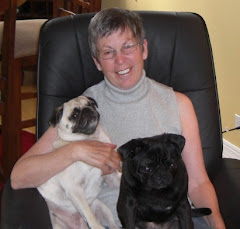(Please listen, pass along and share) YouTube # 1: Dr. Joanna Rose speaks on living in a family created through SPERM DONATION https://www.youtube.com/watch?v=917LoDRa67M YouTube #2: Dr. Joanna Rose addresses what the problem is with Ireland legalizing sperm and egg donation and Ireland's Children's and Family Relationships bill: https://www.youtube.com/watch?v=ahYiO-x6fTg YouTube #3: Dr. Joanna Rose addresses, is sperm and egg donation in the best interests of children?: https://www.youtube.com/watch?v=tFSYWQKCyXw
Monday, March 16, 2015
Sunday, March 15, 2015
Susan Golombok, overstepping the line...
(***Got bias? According to "Professor" Susan Golombok, the only problem with so called 'donor' conception is stigmatisation from outside influences. In other words, the disenfranchised grief many 'donor' conceived feel is only a result of the nature of importance that society puts on genetic relationships. Really?? No. This is where we draw the line.***) "Stigmatisation, not structure, causes problems for children in ‘non-traditional’ families ‘Quality of relationships matters most to the well-being of families’ It is stigmatisation outside the family, rather than relationships within it, that creates difficulties for children in new family forms, says Professor Susan Golombok of the Centre for Family Research within the University of Cambridge." Read more: http://www.familylawweek.co.uk/site.aspx?i=ed143734
Monday, February 2, 2015
Are You Donor Conceived?
With the majority of offspring not being told they are donor conceived a group of donor conceived people are asking "Are you donor conceived?"
https://www.youtube.com/watch?x-yt-cl=85114404&v=U4canXMOELg&x-yt-ts=1422579428
Wednesday, December 4, 2013
Academic Journals with Editions Devoted to Donor Conception
The Australian Journal of Adoption - this journal is freely available and all of the articles can be accessed through the link below. This edition Vol 7 no 3 of 2013 was created in the memory of Narelle Grech a donor conceived woman and DC activist and blogger (T5)
http://www.nla.gov.au/openpublish/index.php/aja/issue/view/248/showToc
The Journal of Law and Medicine, June edition of 2012 - while it is not freely available to the public you might be able to access it through a university library.
http://blog.thomsonreuters.com.au/2012/05/special-issue-on-donor-conception-journal-of-law-and-medicine/
Monday, May 14, 2012
Media Request - Donor-Conceived in Washington DC
Susan Koster, a Washington DC reporter with Voice of America, is interested in doing a video story on people conceived through sperm donation. If you are donor-conceived, live within two hours of Washington DC, and are willing to be filmed, please contact her directly. Susan Logue Koster Features Reporter for Voice of America e-mail: skoster@voanews.com
Wednesday, September 7, 2011
Let's retrospectively release information to Australia's donor-conceived
from Bionews:
http://www.bionews.org.uk/page_104517.asp
05 September 2011
By Dr Sonia Allan
PhD(Law), LLB(Hons), BA(Psych)(Hons) Grad Dip LP, GCHE, Senior Lecturer Law, Deakin University; Global Health Law Fellow, Georgetown University Law Center 2011; Churchill Fellow 2011
Appeared in BioNews 623
An Australian commercial television station recently ran a news story about a donor-conceived woman who has heritable bowel cancer (1). She did not inherit it from her mother. She is denied access to information about her sperm donor because he donated before laws in Victoria enabled information to be released to the donor-conceived. She cannot contact her eight half-siblings, who share that donor, to warn them they may be at risk.
This story reminds us that people conceived using donor gametes have good reasons for wanting information. In fact, it is crucial. It is a matter of identity, medical history, avoiding risks or fears of forming consanguineous relationships, and knowing your genealogical heritage. For others, it is about needing a name so they don't have to refer to their donor as 'donor' or by a clinic code.
In February 2011, an Australian Senate Legal and Constitutional Affairs Committee inquiry into donor conception and identification recommended national legislation be passed to allow access to information as 'a matter of priority'. The Committee also requested a national register be set up to allow information exchange (2). Such recommendations recognised the need for information and the lack of uniformity across the nation.
Several Australian states, including Victoria, Western Australia, New South Wales (NSW) and South Australia, already require donors to consent to the release of information before donating. But - as the law in each state was introduced at different times - donor-conceived individuals are treated differently depending on when and where gamete donation took place. Information about donors has been available in Victoria since 1988, subject to donor consent, and - since 1998 - consent prior to donating gametes has been compulsory.
Other jurisdictions are governed by other guidelines. These have, since 2004, meant clinics cannot use donated gametes unless the donor has consented to releasing identifying information to people conceived using their gametes (3).
The question in all jurisdictions remains whether to allow information to be released retrospectively. This is currently the subject of further inquiry in Victoria (4).
Unfortunately, some commentators object to releasing information retrospectively, arguing a donor's privacy should prevail. But in Australia a 'right' to privacy, while valued, is not absolute. In fact, there are many cases in law where a person's information can be released, including where genetic relatives are at imminent risk of disease.
Other commentators argue donors had a contract for anonymity. But a sample of consent forms signed in the 1970s and 1980s by donors and recipients in Australia reveal they did not prohibit a clinic from releasing information to donor-conceived people (5). They only prevented the release of information to the donor about the recipient parent and vice versa, and - in some cases - ensured the donor would not seek information about the child.
Finally, there is the argument that some donor-conceived people do not want information. But this is no reason to ignore the call from many donor-conceived people who do. The call is getting louder as they marry and have families. Their information remains on file while they are told they cannot have it and cannot pass it on to their children.
Another thing missing from all the opposing arguments is many donors want to exchange information, but do not have an avenue to do so. Parents of donor-conceived people are in similar distress. They want to be open and honest with their families, but are being denied.
I argue that the question we should be asking is - not if information should be released - but how?
Australia's adoption policy is a useful model for release of donor information. All states and territories in Australia passed retrospective legislation that allows adoptees to access information about their genetic heritage. The system protects people's privacy by allowing them to bar contact, whilst allowing for information to be released.
The NSW Law Reform Commission in the 1990s concluded that passing retrospective laws allowed the competing interests of different groups to be balanced. They wrote: '[T]he view that prevailed was that the law should enable adopted persons and birth parents to have the right to information, even though this did mean a change from the position as it was when the adoption order was made. The interests of those who felt threatened by the new law were acknowledged by a contact veto system' (6).
'Information vetoes' were also once possible, but now only remain in South Australia. Interestingly, Queensland enacted retrospective legislation in 2010 that removed 'information vetoes' to redress the injustice suffered by more than 3,000 Queenslanders adopted before 1991. There are an estimated 60,000 donor-conceived people in Australia.
The manifest injustice suffered by donor-conceived people, donors and recipients who need information outweighs arguments that some donors wish to remain anonymous. It is not about making donors into parents - they carry no legal 'rights' or 'responsibilities' in law. Rather, it is about exchanging information.
Sensitivity, counselling, education and public awareness campaigns prior to legislation coming into force would help counter some of the objections. Contact vetoes could be placed to protect the privacy of donors who do not wish to form a relationship with the donor-conceived or their families (7).
While some may argue passing retrospective legislation creates 'potential for injustice, distrust and panic', this misunderstands how such legislation works. The Victorian Adoption Network for Information and Self Help (VANISH) says - despite initial anxiety about the retrospective release of adoption information - it is now well accepted that people wanting information about themselves is normal. The experiences of all involved have been, more often than not, positive.
Donor-conceived individuals deserve the same.
SOURCES & REFERENCES
| Ten News | 27 July 2011 |
| 2) Donor Conception Practices in Australia |
| Senate Legal and Constitutional Affairs Reference Committee | 2011 |
| 3) Ethical Guidelines on the Use of Assisted Reproductive in Clinical Practice and Research |
| National Health and Medical Research Council | 2007 |
| Victorian Law Reform Committee | 2011 |
| 5) Contracts kindly provided to author by donors, recipients and donor conceived individuals |
| | |
| 6) Review of the Adoption Information Act 1990 Issues Paper 7 (1992), Chapter 3, [3.14] |
| New South Wales Law Reform Commission | |
| 7) See Sonia Allan, 'Psycho-Social, Ethical and Legal Arguments For and Against the Retrospective Release of Information about Donors to Donor-Conceived Individuals in Australia' |
| 19(2) Journal of Law and Medicine (Forthcoming) | 2011 |

.jpg)
.jpg)



.jpg)

